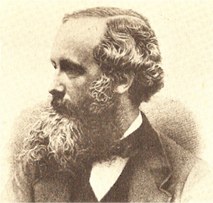Classical Physics
Texts by Dr. Antonio Moreno González
The pillars of what was known as classical , or Newtonian physics, were founded on the works of Galileo Galilei (1564-1642), Dialogues Concerning Two New Sciences , published in Leiden (Netherlands) in 1638, and the Mathematical Principles of Natural Philosophy by Isaac Newton (1642-1727), published in London in 1687.
Galileo's work, translated into English in 1661, contains the first formula for the free fall of bodies, setting the base for his experimental and geometric study. This publication was crucial in surmounting Aristotle's' disquisitions on movement and laying the foundations of scientific knowledge on observation, experimentation, measurement and mathematical formulation.
Newton provided a mechanical vision of the world based on the laws of dynamics and achieved the first scientific synthesis culminating with the establishment of the law of universal gravity, which put paid to the old differentiation between the earth and the heavens as worlds governed by different principles. After Newton it was only possible to speak of a single universe and a single physics.
In the last third of the nineteenth century James Clerk Maxwell (1831-1879) tackled the question of the mathematicisation of electromagnetism which had arisen from the initial experiences of Oersted and Ampére, continued by Faraday who introduced the concept of the electrical field and the magnetic field to delimit the areas of influence of the forces from electrical charges and currents, for the former, and those related to magnets for the latter.
In his theory of electromagnetism, Maxwell managed to relate the properties of magnets, electrically charged bodies and electrical currents, and he also predicted the propagation of electro-magnetic phenomena by means of waves travelling at the speed of light, considered from then on to be electro-magnetic disturbance. This grouping together in a single theory of the electrical, magnetic and optical behaviour of matter represented the discovery of a new scientific synthesis as transcendental as Newton's. Both were pillars of classical physics, but so different in nature that the contradictions between them rocked its very foundations, leading to a new form of physics based on the principles established by Planck and Einstein.

James Clerk Maxwell
(1831 - 1879)
